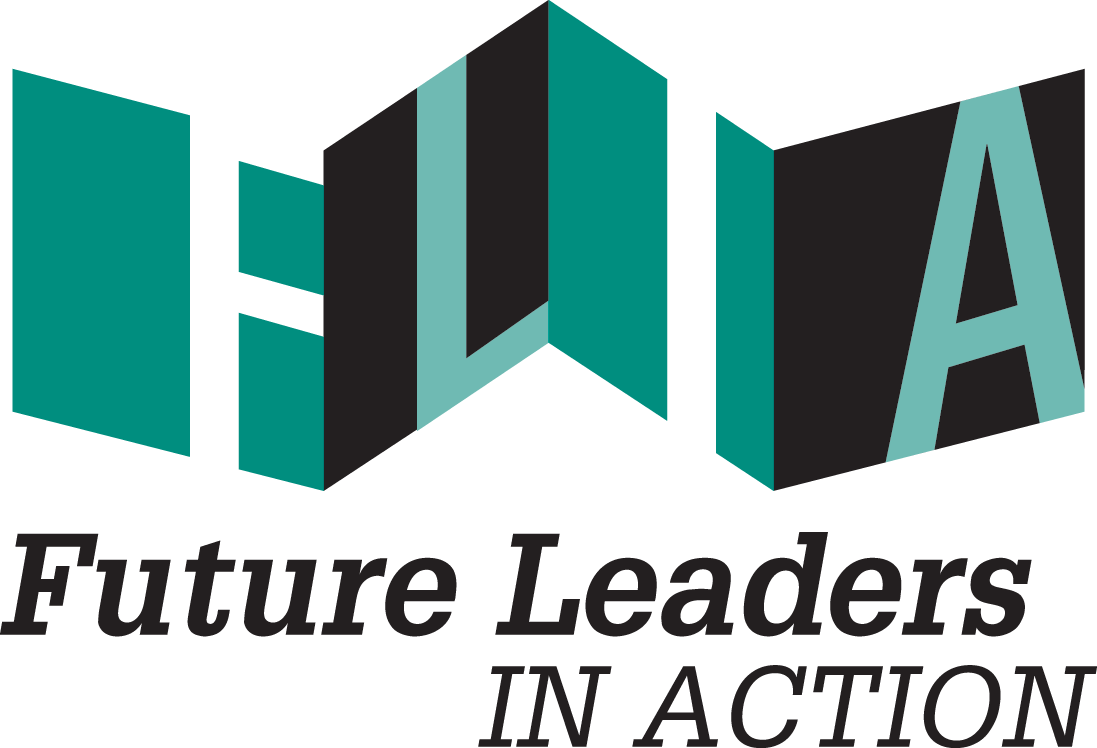Rachel answering a question as a part of the Alumni Panel during the leadership training retreat. Photo credit: Kari Shuck
After devoting many years toward a career in the social sector, many people ask why I chose to pursue an MBA. I want to change the status quo. Businesses can do good things for the world and have the resources they need to do so. My goal is to learn enough about both sectors to achieve financial sustainability while helping the people who need help most. In this article I reflect on the projects I completed as a Senior Fellow (now known as a Leadership Fellow) with Future Leaders In Action (FLIA) and how they will help me advance my career in the social sector.
Background
After receiving a Bachelors in Child and Family Studies, a Graduate Certificate in Nonprofit and Public Administration, and working with youth in nonprofits for some time, I didn’t know exactly where I fit in the social sector. I had to choose between going into direct service or continuing to go to school. After applying to a number of low-paying direct service jobs in Portland and not finding anything, I decided to return to school. At the advice of my Nonprofit Finance professor, I applied to an MBA program and was accepted. I’m now in my second and final year of the MBA program and reassessing where I will fit in the industry now that I’ve learned so much about how to successfully administer a business.
I pursued a fellowship with FLIA because, after a year of learning about for-profit business, I wanted to re-establish and deepen my connection to the nonprofit world. An opportunity with the Boys & Girls Clubs of Portland Metropolitan Area (BGCP) was just what I needed to get more experience in nonprofit program development and evaluation. When the Senior Fellowship opportunity came up in the fall, I was eager for another chance to work with both BGCP and FLIA. This time, I was going to stretch my leadership skills to a new level.
Boys & Girls Club Project
Rachel and a Youth Development Associate select a winner from those who completed her resources survey.
For the partner project, I was asked to create a community resource database and webpage for the Youth & Family Services (YFS) program at BGCP. I interviewed the staff and surveyed families at each Club site, then did a ton of research about the plethora of social services available in Portland. Once I had surveyed every Club, I created a webpage that listed all of the Youth and Family Services available at each Club, and the resources available to each region the Clubs serve.
I developed a few different skills from this project that I believe will be useful in the future: 1) I learned the importance of interacting directly with the people who work at each site while developing tools to help make their jobs easier. 2) I learned how hard it is to survey people, especially busy working families. 3) I hadn’t realized the size of this project when I first took it on. Portland has what seems like a million social service agencies! Not only that, but most agencies have a variety of “wraparound” services, so they were extremely difficult to categorize. I learned a lot about time management on this project. At some point, I had to say “this is enough,” and move on to the next thing.
Senior Fellowship Experience
For the Senior Fellowship project, I had many tasks to complete. My primary objective was to pilot the program and develop a project outline that could be presented to FLIA Board Members for approval to offer this program during future cohorts. After brainstorming with Kirsten about various potential tasks within this project, we surveyed alumni to find out how interested they would be in each task. Prioritizing tasks by their level of interest, we came up with three potential pathways; a proposal-based project, a more in-depth partner project, and a FLIA project. In addition to developing the project outlines, I had a series of tasks to complete in tandem with the other fellows. I was responsible for engaging the other fellows on Slack in order to deepen their interactions and connections with each other. I also edited and posted fellows’ articles on the website, which was another opportunity to interact with fellows in a new way. For me, the highlights of the Senior Fellowship experience were the facilitation opportunities because they stretched me the most. I’m naturally a fairly shy introvert, so it can be hard for me to step into a public leadership role. I (along with a couple other alumni) had the chance to facilitate a module of the leadership training retreat for other fellows. Additionally, I facilitated a cohort-wide conference call, in which I prompted reflections and feedback from each of the fellows in a structured format.
I’m excited to see how the senior fellowship manifests for FLIA in the future. Stepping into this role and piloting the program definitely helped deepen my leadership skills, which was a valuable supplement to the skills I’ve been developing in the MBA program. My experience with FLIA deepened my strengths as a future leader in the social sector.



